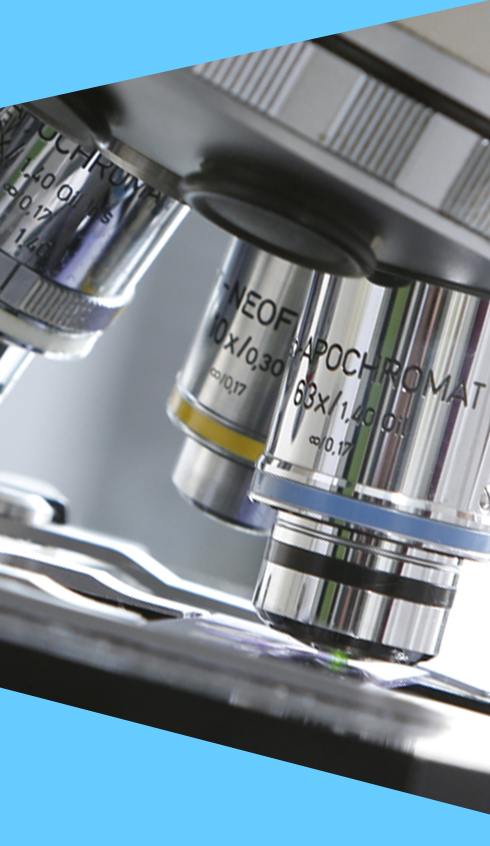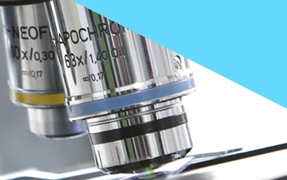Cytogenetics
In classical cytogenetic diagnostics, we investigate chromosomes under the light microscope to detect anomalies affecting their number (aneuploidies) or their structure (e.g. inversions, translocations, duplications or deletions). This conventional method of chromosome analysis continues to be an important diagnostic procedure for example in patients with a history of multiple miscarriages, infertility, psychomotoric developmental delay and others and is applied for prenatal or postnatal testing.
We also offer additional molecular cytogenetic analysis (FISH) for example in patients with suspected mosaicism (also using buccal swabs) and in patients with suspected DiGeorge syndrome or Williams-Beuren syndrome. If you are interested in these additional diagnostic tests, please contact us at +49-551-39-67596.


Prenatal Karyotyping and Rapid Test
On amniotic fluid cells after amniocentesis:
We accept 10 to 15 ml of amniotic fluid collected under sterile conditions for analysis. On each sample, a fluorescence in-situ hybridization (FISH) test will be performed and α-fetoprotein (AFP) will be determined.
The result from the rapid test (numerical analysis of chromosomes 13, 18, 21, X and Y by FISH) can generally be supplied within 1 to 2 days, detailed karyotyping (numerical and structural) will take 9 to 14 days.
On chorionic villi after chorionic villi sampling (CVS):
We need 15 to 20 mg of chorionic villi tissue for chromosome analysis or 30 to 40 mg of tissue for molecular genetic testing.
The result of chromosome analysis from short-term culture is usually supplied within 24 hours and the result of long-term culture after about two weeks.
Postnatal Karyotyping
On peripheral blood lymphocytes:
For the analysis, 2 to 10 ml whole blood should be collected under sterile conditions into lithium-heparin tubes and should be gently mixed.
Culture establishment and analysis take 2 to 3 weeks, in urgent cases 5 to 9 days.
On skin and tissue samples:
We can utilize skin biopsies, small tissue samples (1 qcm) or umbilical cord to grow fibroblast cultures for karyotyping. Upon collection under sterile conditions, the unfixed samples should be transported in sterile saline solution or special medium.
The result of karyotyping will be supplied within about 4 weeks after receipt of samples.


Contact
Prof. Dr. rer. nat. Peter Burfeind


